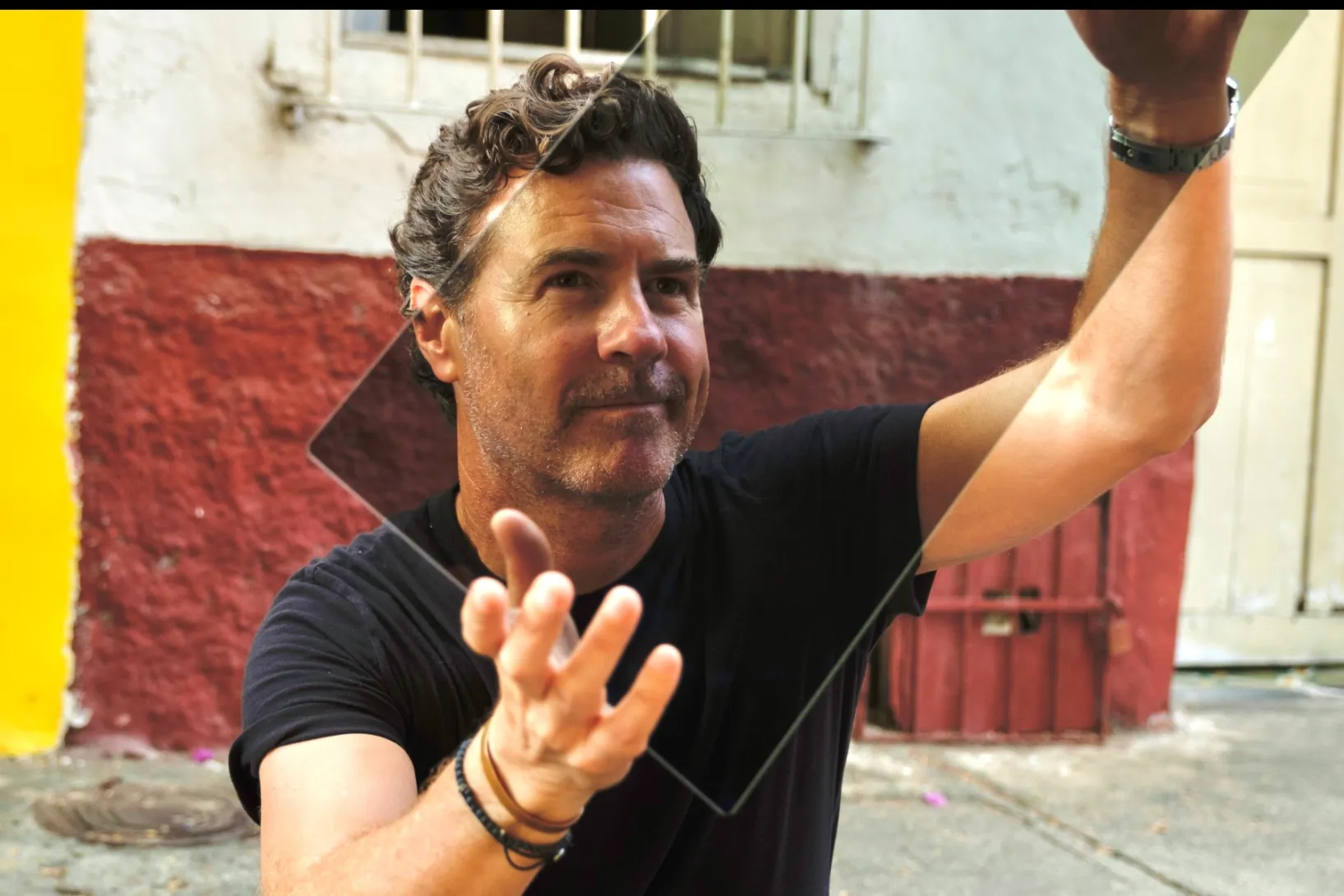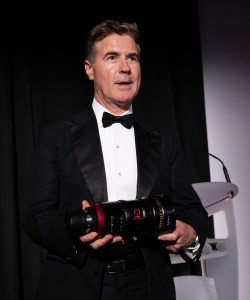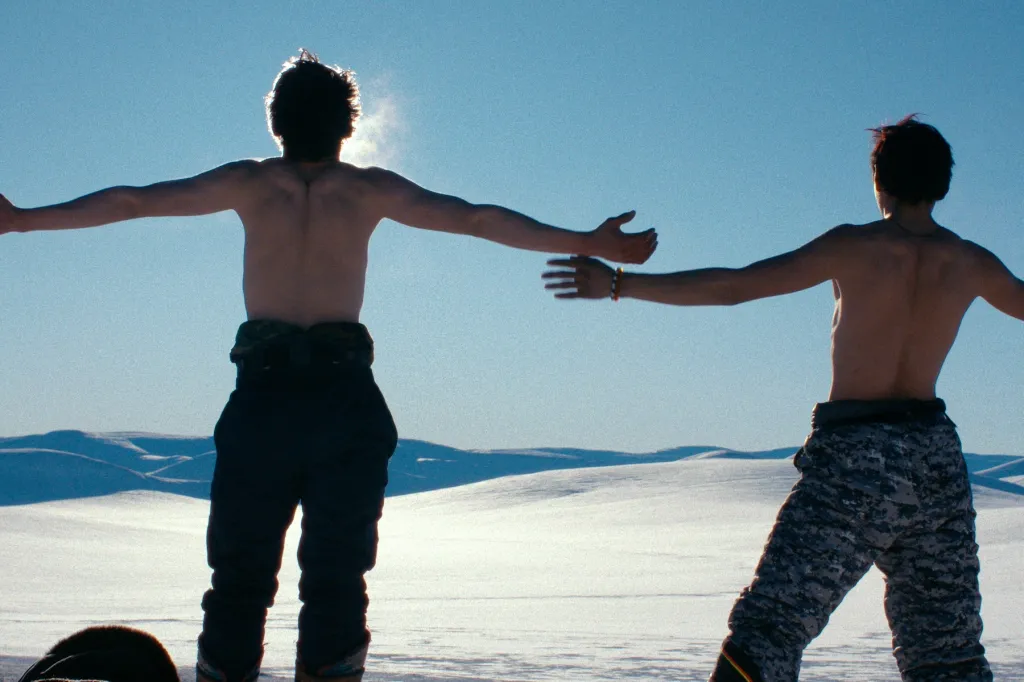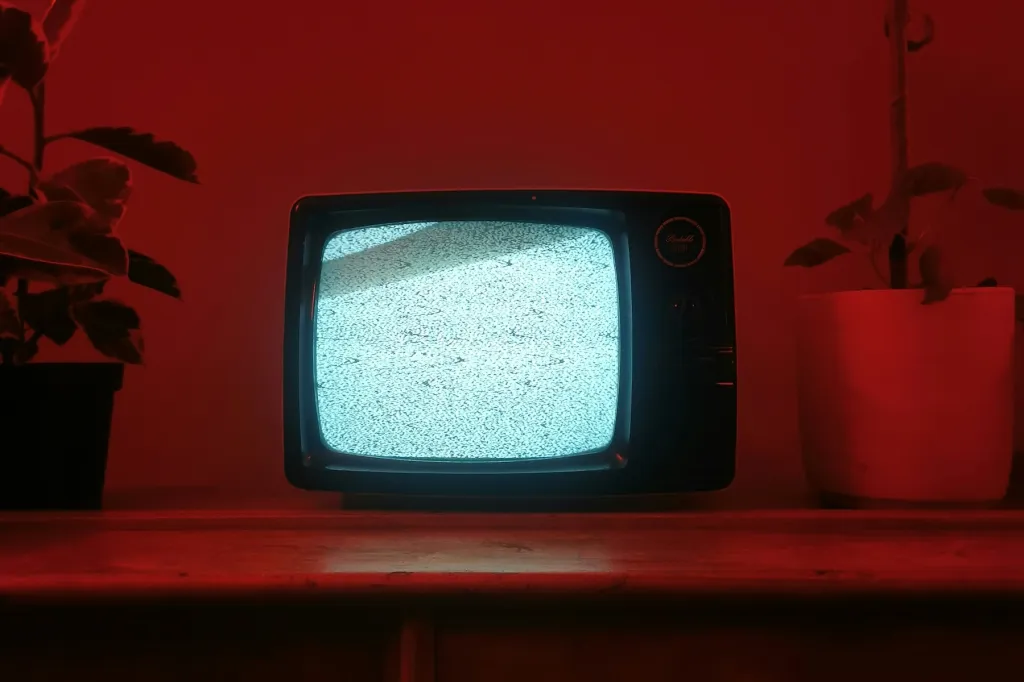The boy from OZ who leapt to the top in Hollywood
Australian cinematographer and Brisbane boy Dion Beebe is at the top of his game in Tinseltown, with his latest film about megastar Michael Jackson promising to be compelling and possibly controversial.

He’s the boy from Brisbane who became one of Hollywood’s leading cinematographers.
Dion Beebe’s resume includes films such as Collateral and Edge of Tomorrow, both starring Tom Cruise. Beebe has worked with local filmmakers including Jane Campion (Holy Smoke, In the Cut) and Gillian Armstrong (Charlotte Gray), along with his Australian Korean-born wife Unjoo Moon (the Helen Reddy story I Am Woman).
In Cannes recently, the boyish and amiable 57-year-old was awarded the Pierre Angénieux Homage, which for the past 12 years has celebrated cinematography’s greatest masters. (Beebe has used lens maker Angénieux for many of his films.)
At the Cannes ceremony he received video link tributes from directors he has worked with – Campion, Armstrong and Michael Mann (Collateral, Miami Vice), as well as Ang Lee (Gemini Man), Niki Caro (Memory & Desire) and Rob Marshall. Beebe won an Oscar for Marshall’s Memoirs of a Geisha, was nominated for Chicago and shot four more films for the director.
The final tribute was from Tom Cruise, who had been at the Cannes festival with Mission: Impossible – The Final Reckoning.
“It was quite emotional,” Beebe admits at a swanky dinner following the ceremony at the newly renovated Carlton Hotel. “I tried to say something, and I don’t know how that went! Tom was very generous, mostly to do with the fact that the two movies I did with him are such different types of movies. I have to say he is literally the hardest-working actor I’ve worked with. He’s so committed on the set and he understands the process.”
‘When you look at Australia, it really does still punch way above its weight in terms of cinema’
Beebe spent his early childhood in Brisbane before moving to South Africa with his family. He studied film in Pretoria for a year – “It was more a technical college and quite frustrating” – before returning to OZ to study at the prestigious Australian Film Television and Radio School in Sydney from 1987 till 1989.
“It was a rigorous application process, but I got in,” Beebe notes, adding than Campion was a few years ahead of him. “The program really fast-tracked me into the industry because of the exposure it gave me. Back then, the (Federal) Government was very supportive of that program and of the arts. When you look at Australia, it really does still punch way above its weight in terms of cinema.”
You might like
Long based in Los Angeles, Beebe returns to Australia regularly and has a home in Sydney.
“Both my wife and I have family in Australia. It’s a beautiful, beautiful country.”

Does he ever visit his birthplace, Brisbane?
“I was literally there about three weeks ago to shoot a commercial with Owen Wilson, who was shooting a project there,” he says. (Wilson stars with Reacher’s Alan Richson in the Hollywood movie Runner, the story of a courier who has three hours to transport a liver from Brisbane to the Gold Coast.)
“So, we flew over with an American director and we shot in Brissie and it was great. I’ve been back over the years, but it had been 10 years since I’d been back. I was like, wow, the city has just blown up. It’s almost unrecognisable, certainly very unrecognisable from when I was living there as a child. I was stunned by how much it had been built up and changed.”
Has he been offered films shooting at studios on the Gold Coast?
“There have been a couple of projects, studio movies going to the Gold Coast to shoot,” he says. “ Pirates of the Caribbean: Dead Men Tell No Tales was one of the projects I was asked to do but, so far, there has been nothing that has really sort of clicked in terms of being the right project for me. Of course, I also look at local projects when they come by, but so far my only journey back was for Unjoo’s film, which we shot in Sydney, even if the story is set in Los Angeles and New York.”
What was it like working with his wife?
“Well, we’ve been practicing a lot over the years, because we’ve done short films and commercials together,” he says. “So we’d figured out the kinks.”
He says he is curious to see Kriv Stender’s documentary Joh: Last King of Queensland.
“I’m not sure how deep it digs, but certainly I remember, coming out of Queensland, that there was so much dialogue about the Joh Bjelke-Petersen years.”
Subscribe for updates
Given that Beebe enjoyed his career breakthrough on Holy Smoke (shot in Australia and India), would he like to work with Campion again?
“I tried to persuade Jane to come to Cannes, but she’s busy with the film school she’s started in New Zealand. Of course, I would love to work with Jane. She’s such a bold filmmaker, which is what we all aspire to be.”
Beebe’s big upcoming film is Michael, the story of mega music star Michael Jackson, directed by Antoine Fuqua. The UK-US production has some Screen Australia funding.
“Michael has been a fascinating journey,” he says. “We’ve been shooting already (at Sony Pictures Studios in Los Angeles and various California locations) and we’re about to restart shooting. The story has expanded and grown. Graham King, who’s producing, has wanted to address that.
“When we shot the first time we found that Michael’s catalogue is so huge, there are so many incredible songs, and we did a lot of performance. I think we were at an hour-and-a-half of just performance, without anyone saying a word of dialogue. So that’s what has led to us to try to expand the narrative.
“I will say that Jaafar Jackson, Jermaine’s son, has been an absolute revelation,” Beebe says. “It’s like the 28-year-old was born to play his uncle. He has Michael’s physicality and looks like Michael at a certain stage of Michael’s life. He can dance like Michael, which I never thought I’d ever say anyone could do, but this kid can. Truly, the closest you’ll ever get to seeing Michael perform again is watching Jaafar.”
Fuqua, known for Training Day and The Equalizer, is an action director, while Beebe is a kinetic cinematographer, so the movie is bound to be full of thrills.
“I hadn’t worked with Antoine before, but I’ve been a big fan of his movies,” Beebe says. “I think it’s an exciting combination for us to find ways to tell Michael’s story which, as you know, is hugely complicated.
“We are really looking more to the movie as a celebration of Michael, rather than some sort of expose. That’s not the goal of the movie.”
While he can’t give too much away, he concedes they have reproduced a couple of the King of Pop’s famous videos.
“I can’t say which ones, but that was amazing to do because that imagery, those moments, were so iconic.”
Michael screens in cinemas from October 2.
Helen Barlow is a Paris-based Australian freelance journalist and critic. In 2019 she received the La Plume d’Or for her services to French cinema.

